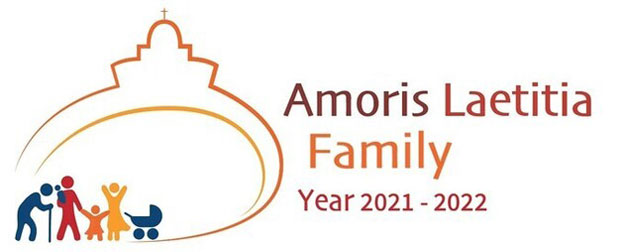
(The Catholic Messenger is featuring columns by Greg Popcak, PhD, that provide families of any shape or size with insights on strengthening relationships and faith in the home. This is the second in the series.)
When Christian families do our best to fill the little tasks of everyday life with God’s love, family life becomes an act of worship and a path to holiness.
There are three building blocks (i.e., “rites”) that make up the Liturgy of Domestic Church Life: The Rite of Christian Relationships, the Rite of Family Rituals and the Rite of Reaching Out. These rites help families practice the priestly, prophetic and royal mission of baptism. In the next few columns we’ll explore each of these rites in detail.
The Rite of Christian Relationship
The Rite of Christian Relationship helps Christian families practice the priestly mission we receive at baptism. A priest offers sacrifice that makes the common holy. When families work to love each other with Christ’s sacrificial love, we consecrate our homes to Christ. God transforms our messy family lives into dynamic, domestic churches; places of grace and healing.
Christians have a very different vision of love than the world does. It isn’t enough for Christian families to attend Mass on Sunday and then treat each other the same way every other family does. The Rite of Christian Relationship challenges families to practice the Christian vision of love in our homes, working for each other’s ultimate good and creating the kind of intimate communion that flows from the heart of the Trinity. That’s a big job, but four simple practices can help every Christian household cooperate with God’s grace to achieve these lofty goals.

1. Prioritize Family Time
Families can’t create close, intimate relationships if they never see each other. Although there are lots of interesting activities people can be involved in, Catholic families are called to prioritize family time over all those other activities. Work, school, sports, lessons, clubs and even charitable works are all valuable, but if our involvement in those activities makes it hard for us to feel truly connected to each other, then our lives are out of order. An overscheduled life is the most common way we desecrate our domestic churches.
Ask yourself, “How much time does our family need each week to feel close and connected?” Work toward prioritizing that amount of family time every week. Schedule everything else around this. Not the other way around. Just imagine the difference we could make if every Catholic family put family connection first. Our home lives would be more joyful and we would be working toward a more orderly world as well.
2. Practice Extravagant Affection
The Word became incarnate so that we could have a real, physical experience of God’s love for us. Even after Christ ascended into heaven, he gave us the sacraments to communicate his love in an intimate, physical way. Christian love is incarnate, embodied and abundant. Christian families, in turn, are called to be appropriately but extravagantly affectionate with one another. Brain researchers tell us that only about 7% of children receive the amount of affection they need to thrive. God made humans to crave affection even more than food. When families practice appropriate, extravagant affection, we model Christ’s incarnate love and validate each other’s dignity as persons.
3. Practice Prompt, Generous, Consistent, Cheerful Service At Home
The Church teaches us that to serve with Christ is to reign with him (Lumen Gentium). The primary place the people of God learn Christian service is in the home. Christians aren’t meant to serve each other grudgingly. Parents and children are called to be a team that responds to each other’s needs promptly, generously, consistently and cheerfully.
4. Practice Discipleship Discipline
St. John Bosco promoted a method of discipline he called the “Preventive Method.” He rejected the heavy-handed childrearing methods of the day in favor of an approach emphasizing “reason, religion, and loving kindness.” Don Bosco also promoted his method as a spiritual exercise that encouraged caregivers to model the prayerful spirit and virtues we wished to inspire in our children.
When we practice the gentleness, self-control and charity required by loving guidance and discipline, we model the compassion the Good Shepherd shows for his sheep when we stray. I discuss more of this approach in my book, “Parenting with Grace.”
The Church Father, Tertullian, famously quoted the pagan observation, “Look at those Christians! See how they love one another!” The Rite of Christian Relationships helps Catholic families call the world to Christ through our loving witness.
(Popcak is the executive director of the Peyton Institute for Domestic Church Life, PeytonFamilyInstitute.org).











